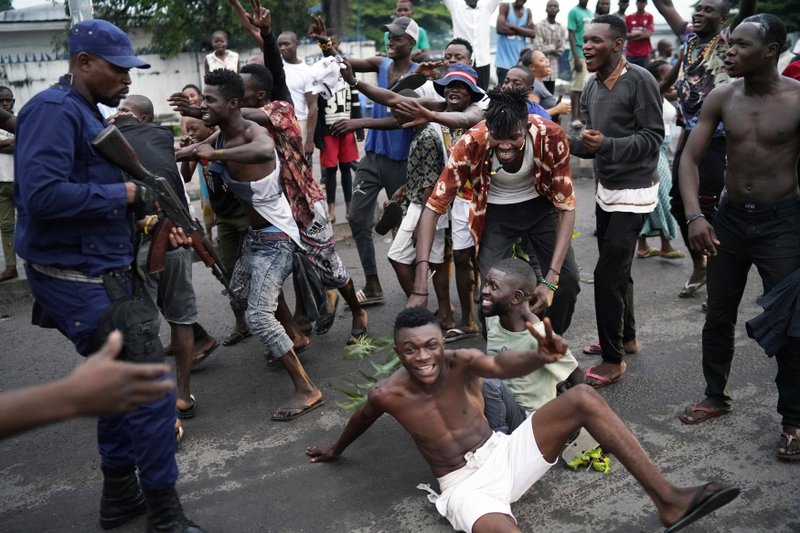KINSHASA, Congo -- Congo appeared on the cusp of its first peaceful transfer of power with the surprise victory Thursday of opposition candidate Felix Tshisekedi, despite clear signs that a rival opposition leader actually won in a landslide.
With no major protests in the capital and limited violence elsewhere in the vast Central African country, the population seemed to be choosing stability over credibility, accepting Tshisekedi's win and the end to President Joseph Kabila's long and turbulent rule.
But a court challenge to the results could spin the country into chaos, observers warned.
The influential Catholic Church, which deployed 40,000 observers at all polling stations, said official results did not match its findings, and diplomats briefed on them said rival opposition candidate Martin Fayulu won easily.
Fayulu alleges that Kabila engineered a backroom deal with the largely untested Tshisekedi to protect his power base in a country with staggering mineral wealth. An outspoken campaigner against Congo's widespread graft -- it ranked 161th among 180 countries in Transparency International's latest index -- Fayulu denounced the official results as "robbery."
He called on people to "rise as one man to protect victory."
As night fell, scores of police with automatic rifles and tear gas launchers were positioned along a road in Kinshasa leading to the Kingabwa neighborhood, a Fayulu stronghold. One vehicle was filled with military personnel in combat gear.
Despite the heavy security presence, the nation of 80 million remained largely calm. Some protest violence was reported in Kikwit, a Fayulu stronghold, where police said three people were killed. Police also confirmed "agitations" in Congo's third-largest city, Kisangani, but said they were quickly brought under control.
It was not immediately clear whether Fayulu would challenge the election results in court. Candidates have two days after the announcement to file challenges and the constitutional court has seven days to consider them before results are final.
Careful statements by the international community did not congratulate Tshisekedi, merely taking note of official results and urging peace and stability in a country with little of it. Observers appeared to be watching for the reactions of Fayulu's supporters.
Two diplomats said all major election observation missions, including those of the African Union and the Southern African Development Community, showed similar results to those of the Catholic Church. The diplomats spoke on condition of anonymity because they were not authorized to speak to the press.
Tshisekedi, who received 38 percent of the vote according to official results, had not been widely considered the leading candidate. Long in the shadow of his father, the late opposition leader Etienne Tshisekedi, he startled Congo last year by breaking away from the opposition's unity candidate, Fayulu, to stand on his own.
Fayulu, a former Exxon manager and Kinshasa lawmaker, received 34 percent of the vote in the official results. He was a vocal activist during the two-year delay in Congo's election, insisting it was time for Kabila to go. Fayulu was backed by two popular opposition leaders barred by the government from running.
The delayed results, 10 days after the Dec. 30 vote, came after international pressure to announce an outcome that reflected the will of the people, with the U.S. threatening sanctions.
The largely peaceful election faced numerous problems as many voting machines that Congo used for the first time malfunctioned. Dozens of polling centers opened hours late as materials went missing. Most alarming to many Congolese, some 1 million of the country's 40 million voters were barred from participating, with the electoral commission blaming a deadly Ebola virus outbreak.
International on 01/11/2019